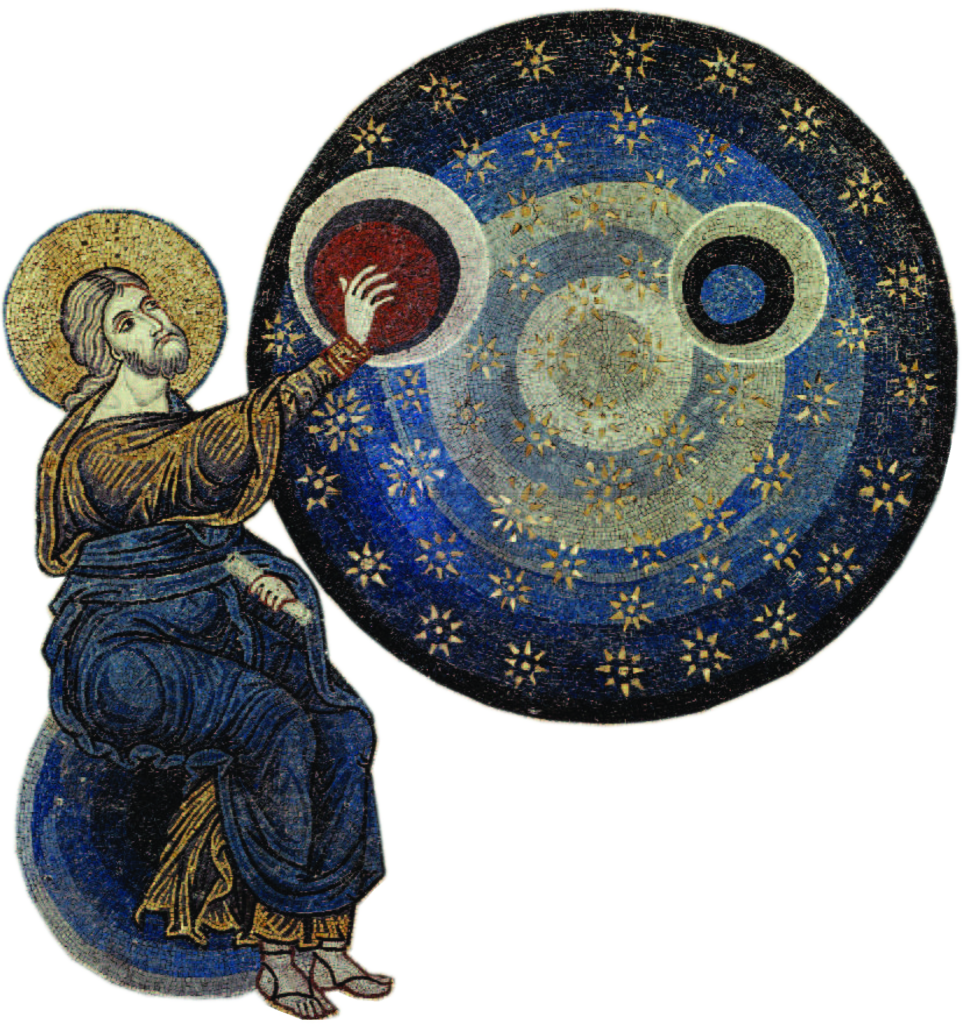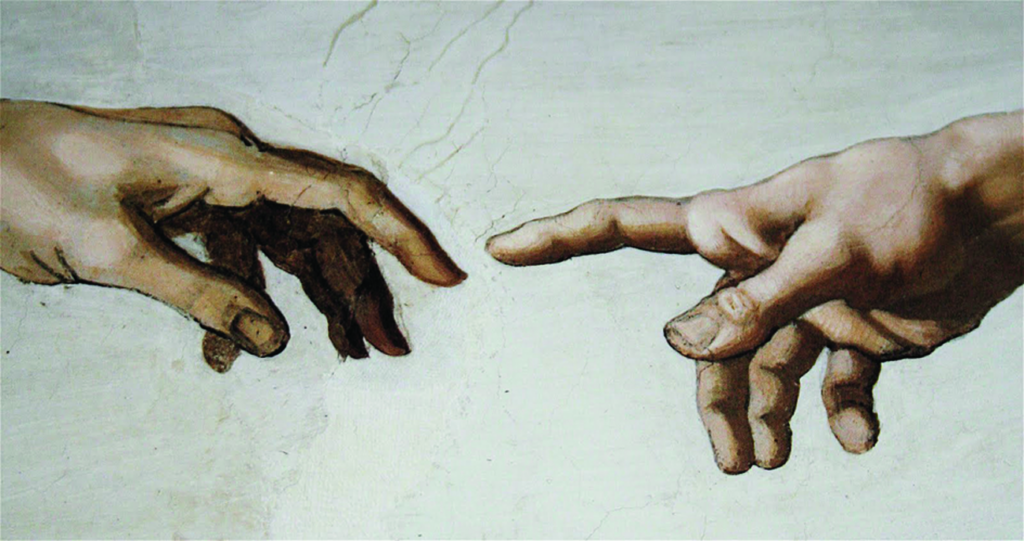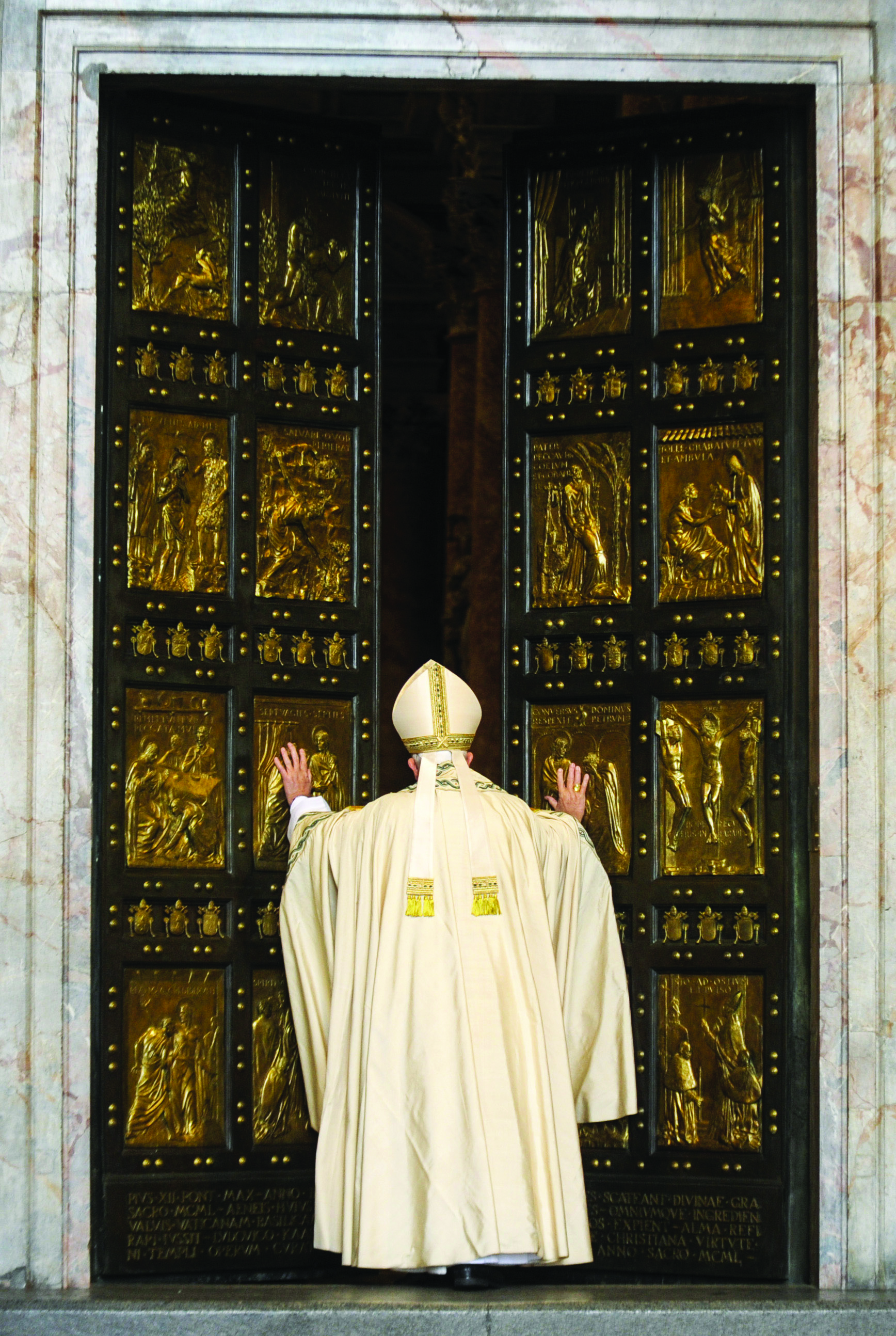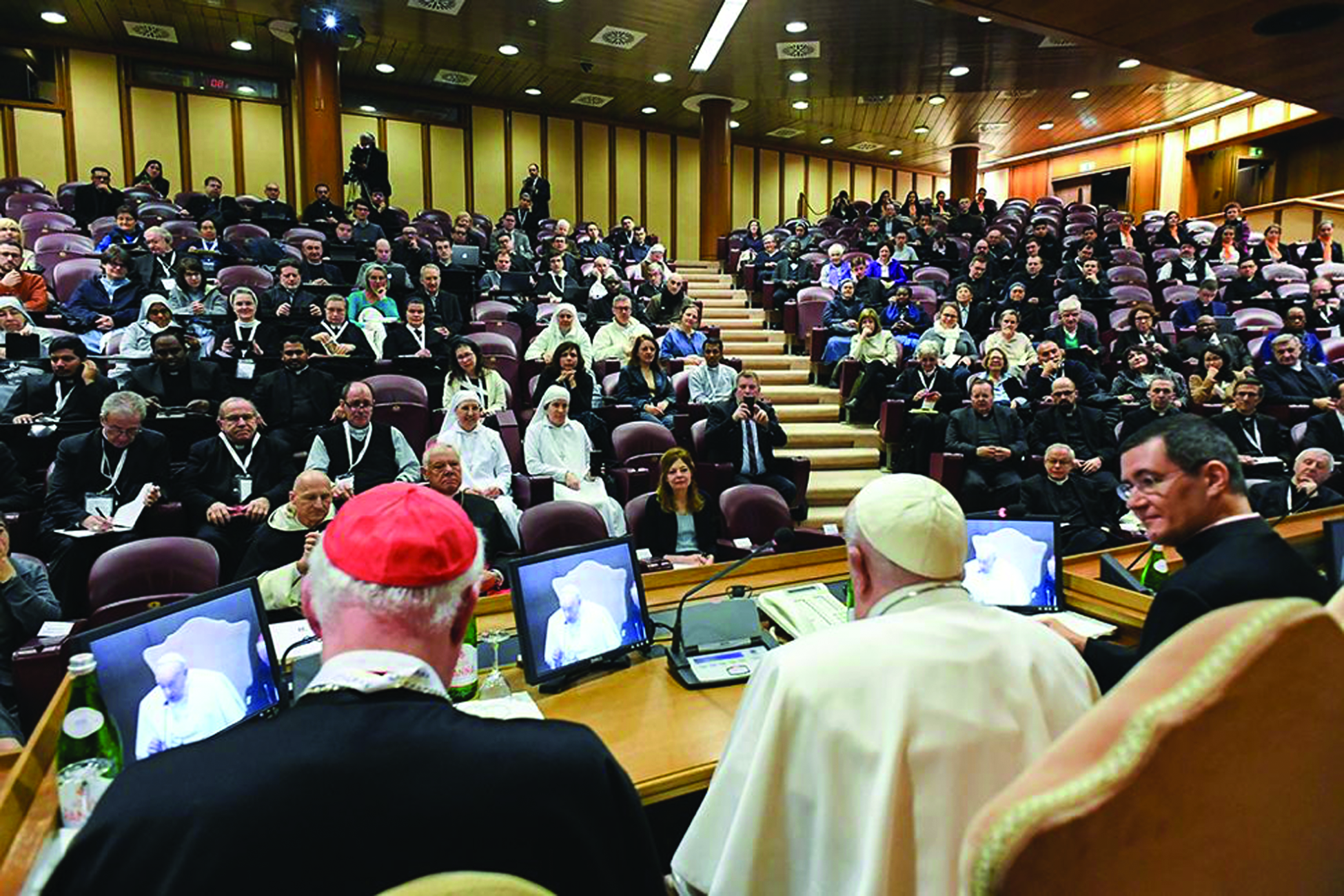Scripture’s chronicle of “the beginning” is theologically—and poetically—one
By Anthony Esolen

Detail of the Mosaics of the Creation in Monreale Cathedral, Italy
Biblical scholars have long told us that there are four sources for the Pentateuch. These are named “J”, for the source that refers to God by the unutterable holy name, Yahweh, “E”, for the source that refers to God by the plural Elohim, “P”, for a priestly source characterized by law, numbers, and ordered patterns, and “D” for the Deuteronomic or second, enhanced view of the Mosaic law. They tell us that the Priestly source is responsible for the first chapter of Genesis, with its enumerated days in the account of creation, and the summation of God’s creative power as embodied in the holy day of worship and feasting, the Sabbath. Then, they say, we get the Elohist source, closer to the human, which more particularly tells us the story of man’s fall from grace. Thus we have two accounts of creation, and the first chapter, they say, tentatively, may have been composed after the second and third.
I do not wish to contradict them on this point, but rather to ask what kind of text we Christians believe we have. Let me explain. When Christopher Marlowe wrote his play Doctor Faustus, he included, in the middle of it, a lot of slapstick comedy, such as when the Pope gets a box on the ear from the Doctor and his familiar devil Mephistopheles. The play was wildly popular, and was often staged long after Marlowe himself — who seems to have been in the employ of the Crown as a secret agent — was assassinated in what was made to look like a barroom brawl.
In any case, later troupes of actors inserted comic scenes of their own, sometimes augmenting what Marlowe wrote, sometimes cutting here and there, and sometimes whipping them up from their own imagination, for the fun of it. So if you are a critic of that play, you have to stipulate what you believe Marlowe actually wrote, and confine yourself to commentary upon that. You cannot treat as an artistic whole everything that has come to us under the name of Doctor Faustus, because that lump sum was undoubtedly not what Marlowe wrote and was probably never staged as such.
But the challenge to Christian readers of the Pentateuch is different. We believe that God inspired the sacred authors to write what they did, because indeed, He is the ultimate author, and they, though they retain their human characteristics and their influences from place and time and the conditions of the children of Israel when they composed, are His instruments. Archaeologically, we have Genesis as an interweaving of three texts, and of who knows how many more ancient traditions either recorded earlier or committed to memory and passed down from generation to generation; but theologically we have one text alone, Genesis, and one that is, unlike the patchwork produced by the stage hustlers capitalizing upon a deceased playwright’s popularity, remarkably unified — a consistent and even relentless saga of the divisions and the chaos that sin engenders in the most intimate life of man, and yet of the patient faithfulness and the grace of God, who does not see as man sees, and who often chooses the humblest means to work His world-changing wonders.

Detail of the fresco of the Creation of Adam, by Michelangelo Buonarroti, Sistine Chapel, Vatican
Archaeologically, we have Genesis as an interweaving of three texts, and of who knows how many more ancient traditions either recorded earlier or committed to memory and passed down from generation to generation; but theologically we have one text alone
We are, then, justified in treating the text as one, especially since, if the three strands of narrative are as the critics have identified them (though with respectable hedging and scholarly reserve), some author inspired by God took them and brought them together, under the great charge of treating of the holiest things. We may trust, then, that more than the words are inspired, but also their ordering, their placement as part of the coherent whole that Genesis is, and the echoes they ring as words and motifs are visited again and again while we move along.
The proof is in the act and its results. Take for example the crucial phrase “in the day,” in Genesis 2 and 3. God warns Adam against eating of the forbidden fruit, for “in the day that you eat of it, you shall die the death” (2:17; translation mine). That phrasing is repeated, in a mocking form, by the serpent, who has pretended that he did not hear what God has said. “You shall not die the death,” says he, “for God [Elohim] knows that in the day you eat of it your eyes shall be opened, and you shall be like gods [Elohim], knowing good and evil” (3:5). The serpent’s phrasing is blasphemous. Clearly, the second plural, Elohim – there are no capital letters in Hebrew to distinguish a proper name from a common noun — is meant to repeat the first plural, Elohim, erasing the distinction between God and man, between the Creator and his creation. It demotes God, making him out to be a sneak and a weakling, and elevates man; indeed, it elevates man by demoting God, as if God had not from the beginning made man in his “image and likeness” (1:26).
More than that, it suggests that there is a day of man’s own making. We have already heard how God created the heavens and the earth in six days, resting upon the holy day, the Sabbath. Suppose that that opening chapter of Genesis was composed later than the second and third chapters. What of it? We have here, by whatever human means it has come to us, a divinely inspired book, and thus we may not treat as a mere accident what will otherwise strike the reader as the result of careful artistic and theological deliberation. Recall that each day of creation is summed up by a formula that is poetic and forceful, gathering power as we move to its consummation in that day when God made man, the crown of his creation; from “and there was evening and there was morning, one day” (1:5) to “and there was evening and there was morning, the sixth day” (1:31), and then, after all, “God blessed the seventh day and made it holy” (2:3).
So now when the translator meets the Hebrew b’yyom, in the day, he should not just translate it as when, because that would sever the link between these utterances and the momentous account of creation before. He should consider the phrase as poetically and theologically intended, and even if we assume that some editor wove the texts together, we may well give him credit, too, for intelligence and a poetic ear. For in God’s creation no place is given for evil: those seven days know nothing of it. Evil has no day.
But what Adam and Eve are tempted to do is to be gods unto themselves, fashioning an additional day, the day of the eating of the fruit from the forbidden tree. Where is this day to be found? Not by the lights of the heavens, that are to mark days and years, and the seasons for feasting. The whole week, shall we say, is taken up already and declared by God to be tov me’od, very good (1:31), its goodness deriving from God himself, as the psalmist reminds us, singing, Hodu l’Adonai ki tov, “Give thanks to the Lord, for he is good” (Ps. 118:1). Nor is man made merely to fit into that creation and do nothing, as his divinely granted authority over it has already been made manifest, in Adam’s naming of the beasts. His days are to be the seven, the very good days that are made one in essence and significance by the Sabbath.
If we look at it this way, to sin is like demanding a day of your own, apart from the time created by the timeless God. But there is no such, nor can there be. You cannot march beyond eternity. You can only double back upon yourself and spoil, for yourself, the days God has granted to you. What that spoliation looks like in the history of man, the rest of Genesis will show us. The only thing that can redeem us, then, is a new day, made by God himself; the day of Resurrection. But that is another matter.






Facebook Comments